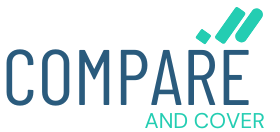Health insurance is often seen simply as a way to cover medical expenses, but in the United States, it offers more than just protection from healthcare costs. If you understand how the tax system interacts with health insurance, you might find that your coverage comes with some valuable financial perks as well. These tax benefits can help you save money, reduce your taxable income, and even set aside funds for future medical expenses.
Whether you’re self-employed, buying coverage through the marketplace, or just curious about how health insurance can affect your taxes, this guide will break down the key tax advantages you should know about—and how to make the most of them.
Why Do Tax Benefits Matter?
Paying for health insurance can be expensive, and for many people, premiums and out-of-pocket costs add up quickly. Tax benefits help ease this burden by lowering how much you owe in taxes or by helping you save pre-tax money for healthcare needs. Essentially, they provide financial relief and make healthcare more affordable.
Understanding these benefits can also influence how you choose your health plan, contribute to savings accounts, and even how you file your taxes each year. Let’s dive into the main tax benefits tied to health insurance in the USA.

1. Premium Tax Credit (PTC)
One of the most significant tax benefits for many Americans is the Premium Tax Credit. This credit helps reduce the cost of premiums if you purchase your insurance through the Health Insurance Marketplace, also known as the exchange.
How It Works:
-
The credit amount is based on your household income relative to the Federal Poverty Level (FPL).
-
If your income falls within certain limits (generally between 100% and 400% of the FPL), you could qualify.
-
The credit can be applied monthly to lower your premium or claimed as a lump sum when you file your tax return.
-
It’s designed to make insurance affordable for middle- and lower-income individuals and families.
Important to Know:
-
To claim the credit, you must file a federal tax return and reconcile the advance payments you might have received.
-
If your income changes during the year, it may affect the credit amount, so it’s important to report income updates to the Marketplace.
2. Deducting Health Insurance Premiums
For some people, the premiums you pay for health insurance can be deducted from your taxable income, which reduces how much you owe in taxes.
Self-Employed Individuals:
-
If you’re self-employed (including freelancers and independent contractors), you may be able to deduct 100% of your health insurance premiums.
-
This includes premiums for medical, dental, and even long-term care insurance.
-
You don’t have to itemize deductions to claim this—it’s an “above-the-line” deduction that directly reduces your adjusted gross income (AGI).
-
This deduction is available for premiums paid for yourself, your spouse, and your dependents.
For Employees and Others:
-
If you’re not self-employed, the rules are different.
-
You can deduct medical expenses—including insurance premiums—only if you itemize deductions.
-
Additionally, the total medical expenses must exceed 7.5% of your AGI to count.
-
This means if your medical costs (including premiums) are below this threshold, you won’t get a deduction.
3. Health Savings Accounts (HSAs)
A Health Savings Account (HSA) is a powerful tax-advantaged account designed to help you save money for medical expenses.
What You Need:
-
To open and contribute to an HSA, you must have a High Deductible Health Plan (HDHP).
-
HDHPs have higher deductibles and out-of-pocket limits than typical insurance plans.
Tax Benefits of an HSA:
-
Contributions to an HSA are made with pre-tax dollars, which means they reduce your taxable income.
-
The money in the account grows tax-free.
-
Withdrawals used for qualified medical expenses are tax-free as well.
-
If you use HSA funds for non-medical expenses before age 65, you may owe taxes plus a penalty—but after 65, you can withdraw for any reason without penalty (though non-medical withdrawals are taxed as income).
Why HSAs Are Popular:
-
They offer a triple tax advantage: pre-tax contributions, tax-free growth, and tax-free withdrawals for medical expenses.
-
Funds roll over year to year, so you don’t lose unused money.
-
They’re a great way to save for future healthcare costs or emergencies.
Why You Should Care About These Tax Benefits
Understanding how health insurance interacts with taxes isn’t just about getting a better tax return; it’s about making smarter financial choices overall.
-
Lower Your Taxable Income: Deducting premiums or contributing to an HSA can reduce your AGI, possibly lowering your tax bracket or eligibility for other tax breaks.
-
Reduce Healthcare Costs: Tax credits and deductions effectively lower what you pay for insurance and medical care.
-
Plan for the Future: HSAs let you build a tax-free healthcare fund, giving you financial security down the road.
-
Maximize Your Benefits: Knowing the rules can help you choose insurance plans and savings accounts that align with your financial goals.

Tips to Maximize Your Health Insurance Tax Benefits
Here are some practical tips to make the most out of these tax perks:
-
Keep Accurate Records: Save receipts, statements, and any paperwork related to your premiums, medical expenses, and HSA contributions.
-
Consult a Tax Professional: Tax laws change frequently. A professional can help you understand your eligibility and avoid mistakes.
-
Choose the Right Plan: If saving on taxes is important to you, consider plans compatible with HSAs or those that qualify you for premium tax credits.
-
Report Changes Promptly: If your income or household size changes, update your Marketplace information to avoid penalties or unexpected tax bills.
-
Know Your Deadlines: File your taxes on time and include all necessary forms (like Form 1095-A for Marketplace insurance) to claim credits or deductions.
Final Thoughts
Health insurance isn’t just a medical necessity—it’s a financial tool that can help reduce your tax burden and protect your wallet. Whether you qualify for the Premium Tax Credit, want to deduct your premiums, or want to take advantage of an HSA, understanding these tax benefits empowers you to keep more of your hard-earned money.
While health insurance premiums might feel like just another expense, the tax advantages available in the USA can turn them into smart investments in your financial health. By staying informed and planning carefully, you can maximize your savings and enjoy better peace of mind knowing you’re prepared for whatever healthcare needs arise.





